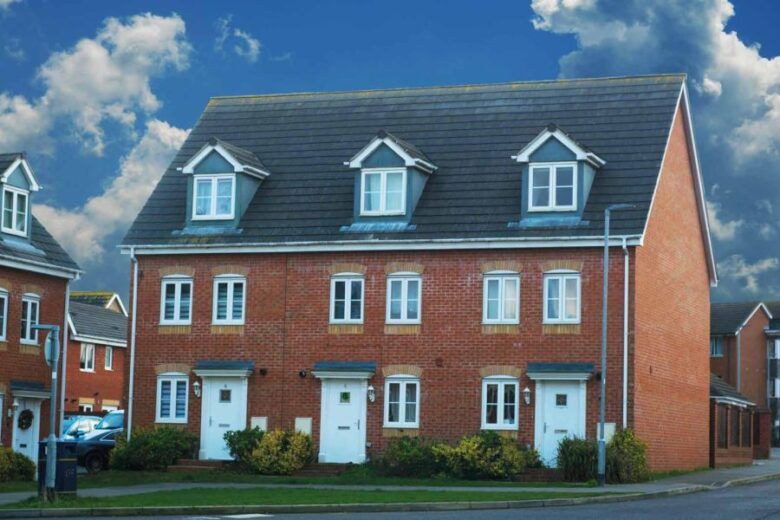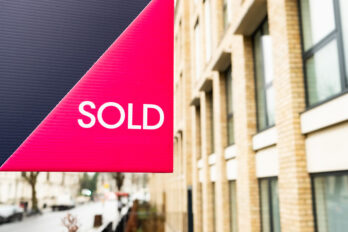
How Do I Sell a Shared Ownership Home?
Shared ownership can be a great way to get on the property ladder without having to save a hefty deposit and cope with major mortgage payments. Selling a shared ownership property can be more complicated, though, so it’s important to be aware of the process before deciding to buy.
What is shared ownership?
Shared ownership is a government scheme that gives first-time buyers and those that do not currently own a home the opportunity to purchase a share in a property rather than having to stretch to get a mortgage to cover the full amount.
The buyer will pay a mortgage on the share they own and also pay rent to their housing association on the remainder. Because the purchaser only needs a mortgage for the share they are buying, the amount of money required for a deposit is usually lower than a standard purchase.
The purchaser can generally buy 25-75% of the property, and they have the option to increase their share over time through a process known as staircasing. If they buy the full 100%, the owner would no longer pay any rent, just their mortgage and any service charges and ground rent.
Can I sell my shared ownership home?
You can choose to sell your property at any time, known as a resale. Your housing association will have the right to buy the property, known as ‘first refusal’, or find an eligible buyer for your home, so the first step when you’ve decided to sell is to contact them.
The fine details around selling the property may change depending on your housing association, so checking your lease is essential. This will include specific information on the procedure, including any restrictions on selling your home. You may also find information such as the length of the ‘nomination period’ – how long the housing association will market your home – in your lease. This is generally between 8 and 12 weeks, after which you will usually be free to market the property with an estate agent.
How to get a shared ownership home valued?
Once you tell your housing association that you would like to sell your shared ownership home, they will request that you have your home valued. As with any sale, it will be your responsibility to arrange for this to happen and pay for it. You’ll need to find a RICS qualified surveyor who will visit your house and put together a valuation report. Your housing association may have its own preferred surveyor, which may seem like the easiest option, but it’s important to have an impartial surveyor who can provide you with the most accurate information possible to get the correct valuation.
As the valuation will only be valid for three months, only arrange this once you know you’re ready to sell; otherwise, you’ll have to pay for another one if the sale takes longer. The valuation must also be sent to your housing association or local authority. The information in the valuation report will help you confirm how much you’ll be able to spend on a new property as you’ll find out how much your share is worth.
You’ll also need to instruct a solicitor and ensure you have an Energy Performance Certificate that is less than ten years old. If you’re unsure when yours was done, you can check the EPC Register. If it’s out of date, you’ll need to find an assessor to come round and reassess the property.
The nomination period
Once this is all in place, you’ll enter your nomination period, during which time your housing association will actively market your home. This may involve sharing the property’s details across their platforms or directly contacting people they know are looking for a similar property. The new buyer must meet the eligibility criteria to purchase a home through the shared ownership scheme and so will usually be a first-time buyer or someone who doesn’t have the funds available to buy on the open market.
If the property doesn’t sell during the nomination period, you may be able to place it on the open market with an estate agent, although the buyer will still have to meet the affordable homes requirement. Your housing association will be able to advise on whether this is possible.
It’s also worth noting that if you have staircased your property and now own 100%, you can sell it on the open market, helping you reach a wider pool of buyers, although you will have to pay any estate agent fees.
Completing the process
Once a buyer who meets the necessary criteria has been found, your solicitor will spring into action to complete the sale. As shared ownership properties are sold on a leasehold basis, the buyer’s solicitor will raise any leasehold enquiries with your solicitor before agreeing on an exchange and completion date.
What if I have problems when selling?
Housing associations often have waiting lists of people wanting to buy shared ownership properties, so the process can often be quicker than selling a standard property.
If there is an issue with the housing association throughout the process or you’re not happy with how they handle your sale, you should follow their complaints procedure and make a formal complaint. If this doesn’t resolve the issue, you can contact the Housing Ombudsman, which offers a free, impartial and independent dispute resolution service. If they find in your favour, they can award compensation and/or require the association to take action.
How much does it cost to sell?
When preparing to sell your shared ownership property, there are several costs you’ll need to budget for. This includes:
- Housing Association selling feesYour housing association will usually apply a charge for the resale process, known as a nomination fee. This tends to be a percentage of the sale price – generally around 1.5%, but it can vary depending on the housing provider. If they cannot sell your home, you’ll need to factor in an estate agent’s commission.
- Housing association marketing feesSome housing associations will also charge you for marketing your property to potential buyers. Fees can vary, but budget in the region of £350 for larger housing providers.
- Valuation feeThe valuation fee depends on the size and location of your home, but plan for between £250 and £500 for a RICS qualified valuation.
- Solicitor’s feesYou’ll need to appoint a solicitor to cover the legal side of the transaction. Again, fees can vary but expect to pay in the region of £1,000.
- Leasehold Information PackThe buyer’s solicitor will request an information pack detailing the lease terms and any ground rent or service charges. This costs in the region of £200-£300.
- Energy Performance CertificateIf you don’t have a valid certificate, you’ll need to pay for a new one. Prices start at around £35 but can be as much as £120 depending on the type of property, location, and how many bedrooms you have. Different assessors also charge different fees, so shop around.
The Novello Approach
As an independent team of RICS registered valuers, we provide you with an independent assessment of your home’s current market value to give you all the information you need to make informed financial decisions when selling your shared ownership property. We deliver accurate and timely valuation reports to help you avoid unnecessary hassle, and we promise to be responsive and keep you informed throughout the process so you can plan your next step with confidence.
To find out more contact us today.

